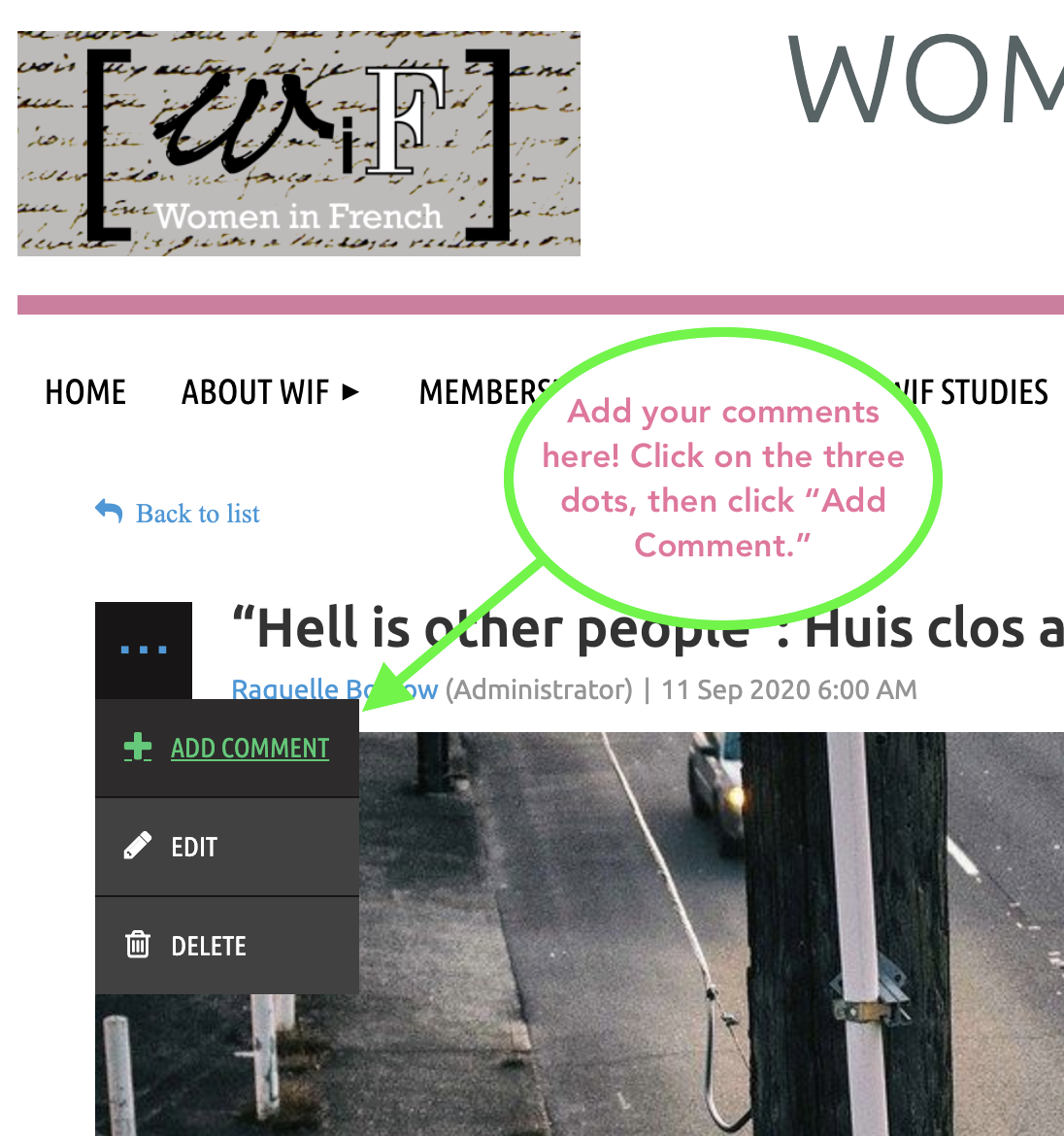Teaching Resources for Converting Your Course to Online Delivery
Prepared by E. Nicole Meyer, Vice-President Women in French
Given that most of us have suddenly been told to convert our classes to online delivery, we would like to share resources with our members of Women in French. Please submit further suggestions to Dr. Meyer at nimeyer@augusta.edu and she will consolidate and post both through WIF List and on the WIF webpage.
- "How to Make Your Online Pivot Less Brutal" (Kevin Gannon, Chronicle of Higher Ed, Mar. 12, 2020)
- "Going Online in a Hurry: What to Do and Where to Start" (Michelle D. Miller, Chronicle of Higher Ed, Mar. 9, 2020)
- "Keep Teaching During Prolonged Campus or Building Closures" (Indiana University)
- "Pandemic Prepping in the Language Class: Instructional Contingency Planning for Emergency Situations" (The FLTMAG)
- "Educator Temporary School Closure for Online Learning" (Facebook group)
- "Pandemic Pedagogy" (Facebook page)
- "A 5-Step Guide to Making Your Own Instructional Videos" (Kareem Farah & Robert Barnett, Edutopia, Aug. 20, 2019)
- "Online Teaching Resources" (H-France)
- "Bringing Your Course Online" (MLA, Mar. 2020)
- "Île en île" (online collection of works by francophone authors)
- "Keep on Teaching: Academic Continuity Plan for Prolonged University or Building Closures" (Upstate University of South Carolina)
- "Accessible Teaching in the Time of COVID-19" (Mapping Access, Mar. 10, 2020)
- "Please do a bad job of putting your courses online" (Rebecca Barrett-Fox, March 2020)
- "Preparing for the Coronavirus on Campus" (HigherEdJobs, Marc. 10, 2020)
- "Teaching Effectively During Times of Disruption, for SIS and PWR" (Stanford University, Mar. 17, 2020)
- "Online Language Pedagogy" (University of Hawai'i at Manoa)
- "Suggested Best Practices and Resources for the Implementation of Hybrid and Online Languages Courses" (ADFL)
- Global Society of Online Literacy Educators + "Need to quickly convert a face-to-face class to an online class?"
- #InstructionalContinuity (Twitter hashtag)
---
Remote Teaching/Learning Survey (created and adapted by Leah Holz and E. Nicole Meyer)
If at some point _____________’s campus has to move to remote/online learning due to the spread of COVID-19, many things will be affected besides just your classes. There will be, of course, anxieties about travel, about loved ones who are far away, about income from work on campus or off, about the national or your personal economy, about food, and many other things. I will do my best to make space for discussions of those concerns, and to help direct you to resources as I am able, and as things evolve. As I am thinking about contingency planning, I would like to have a clear idea of your access to technology, as well as your concerns.
1. Do you have your own computer, or unlimited access to a computer, that you can use for things like class meetings, readings, homework exercises, quizzes, etc. (WebEx is set up for you on our course page on our Learning Management System—zoom is also a great option). Please do not assume that you can rely on the library as they are overburdened with demand. The computer labs are closed. The question asks about private access, not our university-owned computing power.
__ Yes
__ No
__ I have a computer I can use, but not unlimited access to it.
2. If you are unable to join in a real-time WebEx or conference call class [synchronous] during our class period, what seems to you a good method of accessing something that would approximate class discussion? Please check all the things you would be willing to try:
__posting responses to a discussion board
__using google docs to group write a response or set of discussion notes with a few classmates [not available here, but possibly for some WIFians]
__something else (please describe in the next question)
3. Given the learning goals of this class, and the ways our class has gone so far, what suggestions do you have for making remote/online classes work well?
4. What are the things you are most worried about, related specifically to class, as we move to remote/online learning?
5. What are the things that worry you most, beyond this class, about this situation, and the possibility of quarantine or other degrees of social distancing or mandatory isolation due to this situation?
6. Is there anything else you would like me to know as I am thinking about contingency planning, this course, or your situation, that might have an impact on your participation in online versions of this course?

